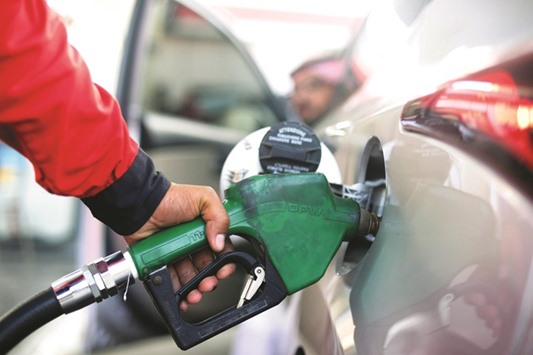Saudi Arabia is expected to save $7bn a year after it introduced unprecedented energy price rises in a bid to offset the low cost of oil, a report said yesterday.
Jadwa Investment said direct savings from the kingdom’s price hike on diesel are estimated at $2.75bn (€2.56bn), and gasoline levies are expected to save an additional $2.5bn.
The rest of the savings will come from price rises on natural gas, fuel oil and propane, it added.
The total cost of energy subsidies in the world’s top oil exporter was estimated at $61bn last year. Indirect costs include the impact on the environment, road accidents and overconsumption because of cheap prices.
Saudi Arabia posted a record budget deficit of $98bn in 2015, 15% of GDP, and is projecting a shortfall of $87bn this year. It posted an $18bn deficit in 2014.
Last month, the Opec heavyweight raised the price of gasoline, diesel, crude oil, ethane, natural gas, fuel oil and electricity by up to 80%.
The Fitch ratings agency said yesterday that Saudi Arabia’s 2016 budget contained significant reforms and followed key expenditure restraints during the second half of 2015.
“The lower-than-expected 2015 deficit mainly reflects measures to contain spending introduced during the year—including greater scrutiny” of capital spending, Fitch said.
The International Monetary Fund and other agencies had forecast the Saudi budget deficit last year to be as much as $130bn.
Saudi Arabia normally overspends its budget projections. Fitch said last year saw the lowest overspend since 1999 at just 13.4%, compared with a 10-year average of 24%.
“Without the one-off cost of royal decrees after the accession of King Salman and additional military and security spending... spending would have been almost on budget,” the agency said.
Revenues in 2015 dropped to $162bn, the lowest since the global financial crisis in 2009, due to a massive $123bn fall in oil revenues.
The contribution of oil income to revenues dropped to just 73% in 2015, from an average of 90% in the past decade.
To finance the budget, the Saudi government withdrew from its huge fiscal reserves and issued bonds on the domestic market.
Reserves dropped from $732bn at the end of 2014 to $632bn in November.
The kingdom is estimated to have issued domestic bonds worth around $30bn since July, raising public debt to $38bn, or 5.8% of GDP, Jadwa said.

A Saudi employee fills his car at a petrol station in Jeddah. The total cost of energy subsidies in the world’s top oil exporter was estimated at $61bn last year.
